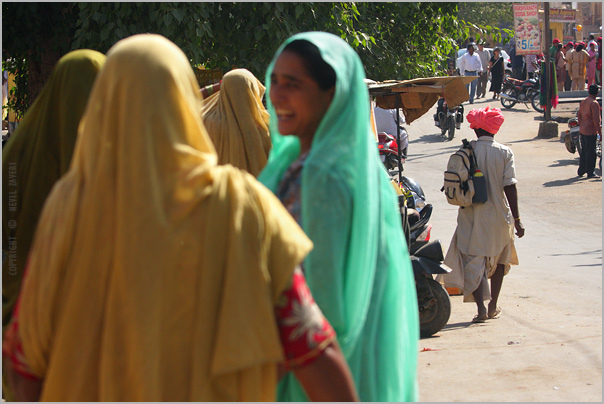Eastern world refers to countries in the Asia and Middle East whereas Western world refers to North and South America, Europe, Australia and New Zeeland. East and West may have numerous differences based on culture. These differences can be noted mainly in people’s behavior and attitudes. However, since east and west refers to various countries and cultures scattered across the globe, only a broad generalization can be made to compare the two cultures. The main difference between eastern and western culture is that people in the east are more traditional and conservative than the people in the west.
Eastern culture includes Asia and the Middle East, while the western world includes South and North America, European countries, New Zealand and Australia. The East and West have many differences based on their culture which is reflected in people’s attitude and behaviour.
When a comparison between eastern and western culture is made, one of the key differences between western and eastern culture is that countries in the West are more liberal than countries in the East. Western culture allows people to be more open and critical. They discuss subjects that are considered taboo in eastern cultures and they are allowed to show their emotions and vent anger if they think they should. This sort of behaviour wouldn’t take place in eastern cultures. People prefer to approach difficult situations by using good manners and tact, not aggression.
A second eastern and western culture comparison is a person from the West is more free and flexible to reach decisions on his/her own, unlike what happens in the East where families make more decisions collectively. Thirdly, arranged marriages are not a key feature of western cultures, as love is considered to be the way that people tie the marital knot.
Can there ever be similarities between eastern and western culture?
Many schools of thought believe that there is not enough common ground between eastern and western cultures for them to ever share similar characteristics. There are some features that are so different, like the types of religions in eastern cultures, such as Islam, Hinduism, Shenism, Buddhism, Jainism and Taoism. Clothing and rituals are so different in eastern cultures, like Indians paying respect to parents or elders by touching his/her feet. East Asians bow down as a gesture used when welcoming guests, saying thank you and apologizing. When it comes to ideologies and beliefs, eastern cultures find it difficult to question them despite what they might really feel. In contrast, most people can forsake religion and no one will think anything of it.
Elders are the decision-makers in eastern cultures
The difference between western and eastern culture can be seen by looking at the role of elders. In eastern cultures, elders are the leaders in the home, so children do what the elders say without questioning them. Any important decisions to do with a child are generally made by an elder. When parents grow old, children are often the ones who take on the responsibility for caring for them. Often in western cultures, an elderly person’s welfare becomes the responsibility of the state in collaboration with children or other close relatives.
Arranged marriages commonly take place in eastern cultures. They are usually arranged by a couple’s parents or another elder. They believe that love follows marriage, not the other way round.
Education has few similarities between eastern and western cultures
The comparison between eastern and western culture shows that western education focuses on creativity and allows individuals to develop as much as they can. In Eastern education, achievement is linked to struggle and hard work. This means you can achieve anything if you work hard enough. Students from eastern cultures often excel academically when in a western educational environment because they work harder than western children.
Students in western culture are encouraged to actively participate in debates and ask questions. This is not so much the case in eastern cultures where what the teacher says is always right. Added to this is the extra effort in western cultures to integrate children who are classified as special needs. They sit in classrooms alongside other students. This doesn’t often happen in eastern cultures where special needs children are taught separately.
Here are some of the major difference between Western culture and Eastern culture.
Eastern Culture
Eastern world refers to countries in Asia and Middle East. The people in eastern countries are more traditional than people in the West when we consider their rituals, customs, clothing, etc. For example, Indians pay respect to their elders by touching their feet; East Asians use bows as greetings, apologizing and thanking. People in the East are rigid in their ideologies and beliefs; they are often reluctant to challenge and question the long practiced traditions and customs.
In eastern countries, elders are considered as the head of the home and children respect and obey them in all decisions. The important decisions regarding children’s future are usually taken by elders. When parents grow old, the children are expected to look after them.
Arranged marriages are a common phenomenon in eastern countries. They are usually arranged by parents or elders. Factors like education, social status, and family background are considered in these marriages. The concept that love comes after marriage is also promoted by these marriages. Moreover, public displays of affection are often frowned upon in Eastern countries.
Islam, Hinduism, Buddhism, Jainism, Shenism, and Taoism are some common religions in these countries. Rituals and customs of different communities may also differ according to these religions.

Western Culture
Western World mainly refers to Europe and North America. Judaism, Christianity, and Islam are some of the most common religions practiced in the Western world.
People in the west are more open-minded than those in the east. The westerns are more open and forthright. For example, topics such as the birth of a child and sex are still taboo in some eastern countries.
People in the west are also more open about their feelings. If they are angry, they might express. But people in the east might cover it for the sake of diplomacy and politeness. Westerns may also display their feelings and emotions in public.
Moreover, the individual is given preference over family, so a person has more freedom and power to take decisions on his own, unlike those in the east. Therefore, concepts like arranged marriages are not common in the west; they marry for love.

In western culture, relationships are not hierarchical and everyone is considered to be equally important and respected irrespective of their age or professional qualification, whereas, in eastern culture, people who are older or have higher professional qualifications are considered to be more respectful and important.
Moreover, in the west, people are more task-focused when it comes to spending time, that is, they see time as money and want to get their tasks done without wasting any time, whereas, in the east, people are more event focused and love to spend their time on building relationships.
When it comes to speech, people in the west are honest, whereas people in the east value harmony over honesty, that is, they would rather speak the lie and maintain harmony in the relationship than speak the truth.
Also, the westerners are independent and do things themselves, on the other hand, the eastern culture has different levels of society, and people in a higher level of society hire people from a lower level of society and help them monetarily.
Considering food, eastern culture is famous for its hospitality, whereas westerners view the same hospitality as ostentatious and prefer to be efficient which easterners view as inconsiderate.
Then there is a difference in ethics, how something is considered to be right or wrong. In eastern culture, ethics are based on honor and shame. If something brings honor to your society then it is considered to be right and if something brings shame to your society then it is considered to be wrong. Such is not the case in western culture. In western culture, ethics are strictly based on law. If something follows the law it is considered to be right and if something breaks the law it is considered to be wrong.
Another good cultural model that will help you paint a clear picture of the cultural differences is the Hofstede’s Cultural Dimensions Theory











